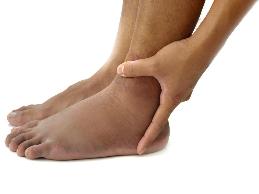On This Page
About Pregnancy
Pregnancy affects women in different ways. For some women, it can bring about various physical and emotional changes that can affect the ability to perform certain job tasks. Some women experience no or very few limitations while others may experience limitations that create the need for job accommodations. For example, fatigue, nausea and vomiting, or pain and swelling might impact attendance or working long hours; restrictions in lifting, standing, or bending might affect the ability to meet some of the physical demands of a job; hormonal fluctuations might impact concentration and memory or cause anxiety; or the need to eat and drink frequently, or wear more comfortable clothing might affect adherence to certain policies. Pregnancy-related medical conditions like gestational diabetes, back pain, anemia, high blood pressure (known as preeclampsia), urinary tract infections, severe dehydration, depression, complications requiring bed rest, and the after-effects of delivery can also create limitations. Pregnancy and childbirth may exacerbate existing health conditions as well.
Pregnancy and the Americans with Disabilities Act
Does federal law require employers to make accommodations for workers who are pregnant?
Yes. Several federal laws protect job applicants and employees who are pregnant from discrimination and/or may require covered employers to make reasonable accommodations for workers with known limitations related to pregnancy, childbirth, or related medical conditions. These laws include the Pregnant Workers Fairness Act (PWFA), Title VII of the Civil Rights Act of 1964 as amended by the Pregnancy Discrimination Act (PDA), and the Americans with Disabilities Act (ADA) when there is a disability related to pregnancy. Similarly, many state laws provide protections for workers who are pregnant. Additionally, the Family and Medical Leave Act (FMLA) requires covered employers to provide unpaid, job-protected leave for family and medical reasons, including the birth or adoption of a child.
What does the Pregnant Workers Fairness Act (PWFA) require?
The PWFA is a federal law that requires covered employers to make reasonable accommodations for qualified applicants and employees with a known physical or mental condition related to, affected by, or arising out of pregnancy, childbirth, or related medical conditions ("known limitation"), unless undue hardship will result. "Known" means the employee or the employee’s representative has communicated the limitation to the employer. "Reasonable accommodation" generally means a change in the work environment or how things are usually done. Some examples of possible reasonable accommodations under the PWFA include:
- Additional, longer, or more flexible breaks to drink water, eat, rest, or use the restroom;
- Changing food or drink policies to allow for a water bottle or food;
- Changing equipment, devices, or workstations, such as providing a stool to sit on, or a way to do work while standing;
- Changing a uniform or dress code or providing safety equipment that fits;
- Changing a work schedule, such as having shorter hours, part-time work, or a later start time;
- Telework;
- Temporary reassignment;
- Temporary suspension of one or more essential functions of a job;
- Leave for health care appointments;
- Light duty or help with lifting or other manual labor; or
- Leave to recover from childbirth or other medical conditions related to pregnancy or childbirth.
Find more information in the Equal Employment Opportunity Commission (EEOC) resources What You Should Know About the Pregnant Workers Fairness Act and Summary of Key Provisions of EEOC's Final Rule to Implement the Pregnant Workers Fairness Act (PWFA).
What does the Americans with Disabilities Act (ADA) require?
The ADA requires covered employers to provide reasonable accommodations to workers with disabilities, so long as doing so does not impose an undue hardship on the employer. Pregnancy alone is not an ADA disability but many pregnancy-related impairments are ADA disabilities. A pregnancy-related impairment is a disability if it substantially limits one or more major life activities or substantially limited major life activities in the past. For example, pregnancy-related conditions may include anemia, sciatica, gestational diabetes, preeclampsia, morning sickness, swelling in the legs, depression, or other impairments that substantially limit a major life activity or the normal functioning of a bodily system. Reasonable accommodations vary but might include a modified work schedule; the ability to have snacks or drinks at a workstation; a modified attendance policy; additional or frequent breaks; sitting; lifting assistance, job restructuring, or light duty work; telework; or leave to attend medical appointments, among other solutions.
What does Title VII of the Civil Rights Act of 1964, as amended by the Pregnancy Discrimination Act (PDA), require?
Title VII, as amended by the PDA, prohibits pregnancy-based discrimination and harassment and requires covered employers to make work adjustments for workers who are pregnant. The law forbids employment discrimination based on pregnancy, childbirth, or medical conditions related to pregnancy or childbirth. It also requires that workers who are temporarily unable to perform or are limited in performing job functions due to pregnancy, childbirth, or a related medical condition, be treated in the same manner as other employees who are similar in their ability or inability to work. This might include making work adjustments like providing light duty work, alternative work assignments, allowing additional breaks, or providing unpaid leave. For example, an employer with a policy of accommodating most non-pregnant employees with lifting limitations would be required to also accommodate pregnant employees with lifting limitations.
Technical Assistance Resources
Several Equal Employment Opportunity Commission (EEOC) resources include information about the laws that prohibit discrimination against workers with known limitations related to, affected by, or arising out of pregnancy, childbirth, or related medical conditions, and require covered employers to make reasonable accommodations unless it creates an undue hardship. See the following:
- EEOC’s Pregnancy Discrimination and Pregnancy-Related Disability Discrimination
- EEOC's Interpretive Guidance on the Pregnant Workers Fairness Act (Appendix A to Part 1636)
- EEOC's What You Should Know About the Pregnant Workers Fairness Act
- EEOC's Summary of Key Provisions of EEOC's Final Rule to Implement the Pregnant Workers Fairness Act (PWFA)
- EEOC's Tips for Small Businesses: Pregnancy, Childbirth, or Related Medical Conditions Accommodations
- EEOC’s Enforcement Guidance on Pregnancy Discrimination and Related Issues
- EEOC's Questions and Answers about the EEOC's Enforcement Guidance on Pregnancy Discrimination and Related Issues
For information regarding The Fair Labor Standards Act (FLSA) as amended by the PUMP Act, which requires most employers to provide covered nursing workers reasonable break time and a private space, other than a bathroom, to pump breast milk for one year after the baby’s birth, see:
- FLSA Protections to Pump at Work
- Fact Sheet #73: FLSA Protections for Employees to Pump Breast Milk at Work
Accommodating Employees with Pregnancy
Workers who are pregnant may develop some of the limitations discussed below, but seldom develop all of them. Also, the degree of limitation will vary among individuals. Be aware that not all women who are pregnant will need accommodations to perform their jobs and many others may only need a few accommodations. The following is only a sample of the possibilities available. Numerous other accommodation solutions may exist.
Questions to Consider:
- What limitations is the employee experiencing?
- How do these limitations affect the employee and the employee’s job performance?
- What specific job tasks are problematic as a result of these limitations?
- What accommodations are available to reduce or eliminate these problems? Are all possible resources being used to determine possible accommodations?
- Once accommodations are in place, would it be useful to meet with the employee to evaluate the effectiveness of the accommodations and to determine whether additional accommodations are needed?
- Do supervisory personnel and employees need training?
Accommodation Ideas:
Situations and Solutions:
The following situations and solutions are real-life examples of accommodations that were made by JAN customers. Because accommodations are made on a case-by-case basis, these examples may not be effective for every workplace but give you an idea about the types of accommodations that are possible.
JAN Publications & Articles Regarding Pregnancy
Publications
Consultants' Corner Articles
- Accommodations Related to Commuting To and From Work
- Best Practices for Addressing Requests for Ergonomic Chairs
- Confidentiality of Medical Information under the ADA
- Hidden Disabilities: Confidentiality and Travel
- How does the Americans with Disabilities Act (ADA) Apply to Employees Who Have Infertility?
- Preparing for Pregnant Workers Fairness Act (PWFA) Accommodation Requests






